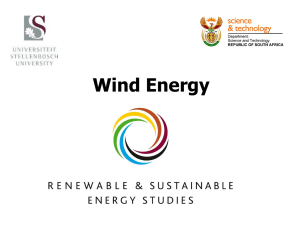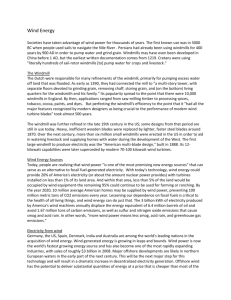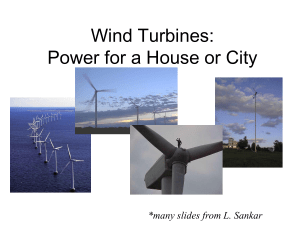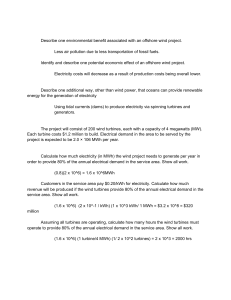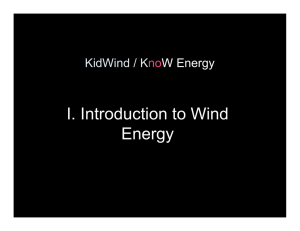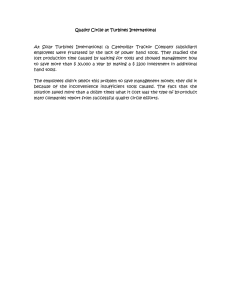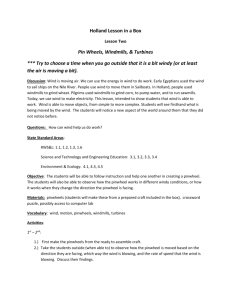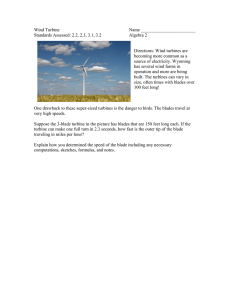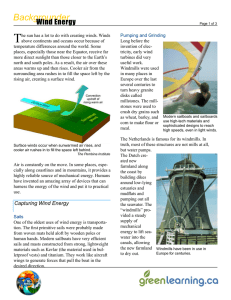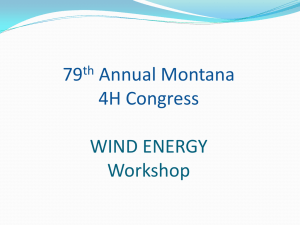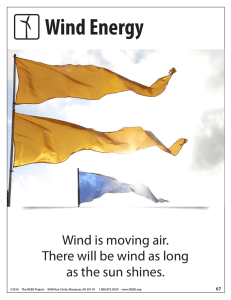The first windmills were developed to automate the tasks of grain-grinding
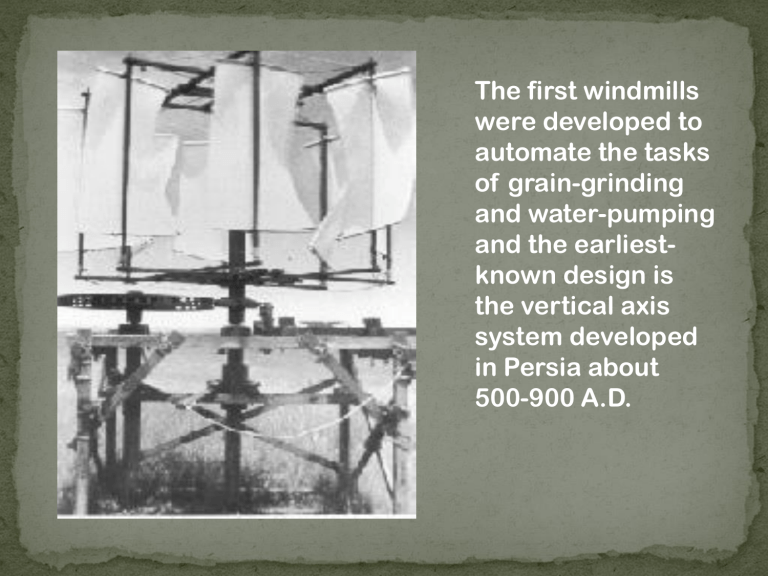
The first windmills were developed to automate the tasks of grain-grinding and water-pumping and the earliestknown design is the vertical axis system developed in Persia about
500-900 A.D.
Horizontal axis windmills first appeared in
Western Europe
1300-1875 AD.
Typical Dutch windmills are several stories high. Each floor is devoted to the process of grinding or storing grain.
Steel bladed water pumping tower. These systems were perfected in the
United States during the 19th century. Later in the 19 th century the first windmill to produce electricity was designed.
Later in the 19 th century the first windmill to produce electricity was designed. The
Brush postmill in
Cleveland, Ohio,
1888. The first use of a large windmill to generate electricity.
Jacobs Wind-electric in 1977. These were some of the first small electric-output wind turbines. The original use was provide lighting to farms. These turbines were used by the mid-1920s.
Post
World
War II
Europeans continued to develop wind turbines after WWII because of the rising cost of fossil fuels.
Gedser Mollen was in use in Denmark until early
1960s.
Typical wind turbine today.
Wind turbines today can provide electricity for many homes and businesses.
A wind farm is several wind turbines that together produce large amounts of electricity.
Noise of a wind turbine compared to other every day noises.
